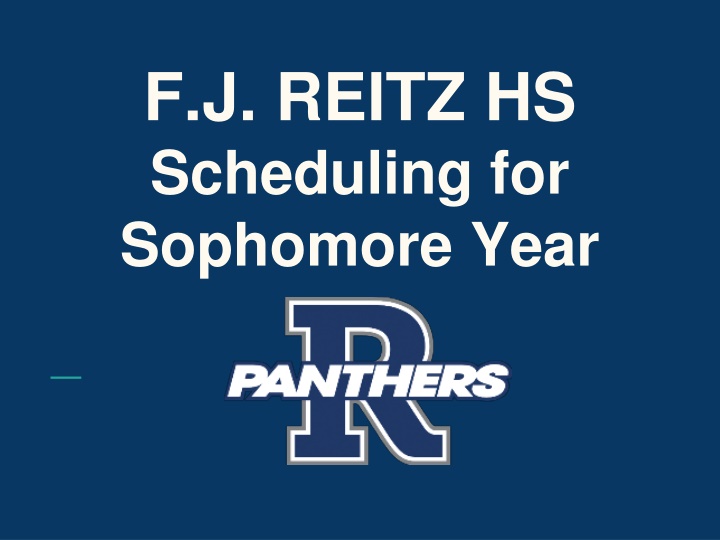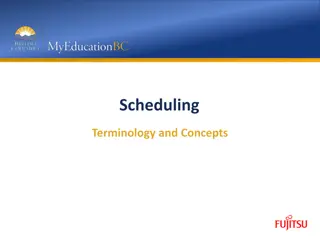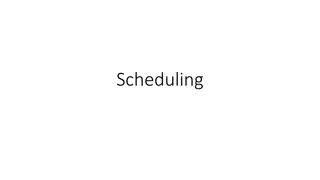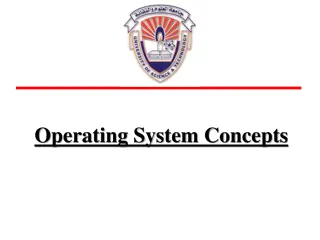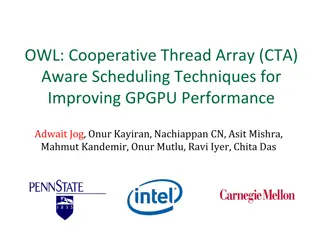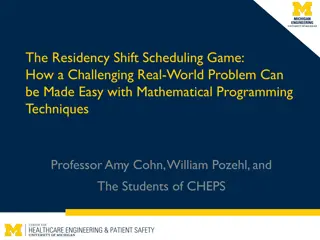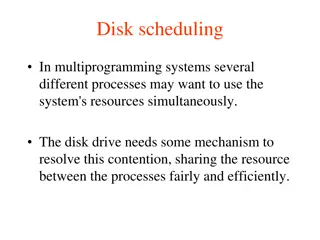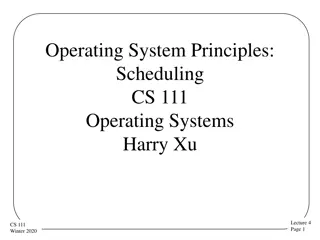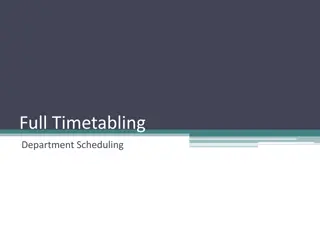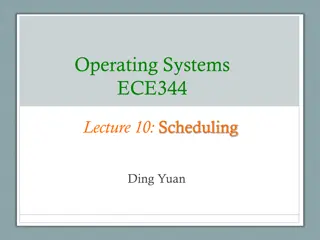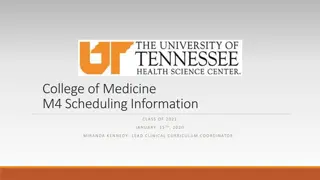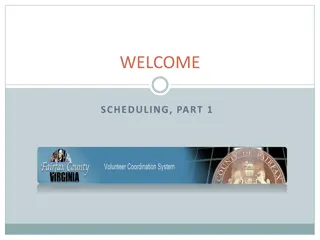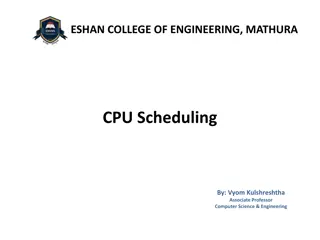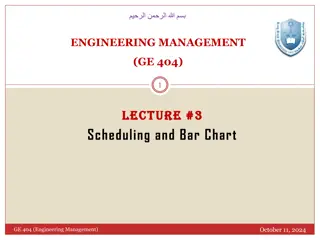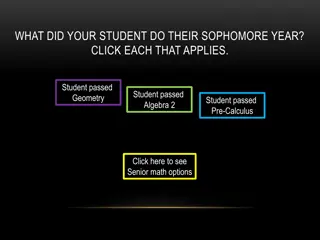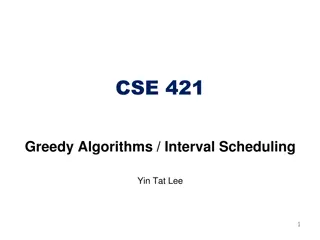F.J. REITZ HS Sophomore Year Scheduling
Graduation requirements, diploma designations, benefits of AP and college credit courses, and course enrollment sheets are discussed in the presentation for sophomore students at F.J. REITZ High School. Details on CTE concentrators, Core 40 requirements, Academic Honors, and Technical Honors are also included. Learn about Advanced Placement (AP) courses and their advantages for high school students preparing for college-level work and credits.
Download Presentation

Please find below an Image/Link to download the presentation.
The content on the website is provided AS IS for your information and personal use only. It may not be sold, licensed, or shared on other websites without obtaining consent from the author.If you encounter any issues during the download, it is possible that the publisher has removed the file from their server.
You are allowed to download the files provided on this website for personal or commercial use, subject to the condition that they are used lawfully. All files are the property of their respective owners.
The content on the website is provided AS IS for your information and personal use only. It may not be sold, licensed, or shared on other websites without obtaining consent from the author.
E N D
Presentation Transcript
F.J. REITZ HS Scheduling for Sophomore Year
Presentation Objectives Review graduation requirements Review diploma designations Review the benefits of AP and college credit courses Discuss course enrollment sheet
Current CTE Concentrators at Reitz Education and Training Pathway Level 1 Course: Principles of Teaching Concentrator A: Child and Adolescent Development Concentrator B: Teaching and Learning Marketing and Sales Pathway Level 1 Course: Principles of Business Management Concentrator A: Marketing Fundamentals Concentrator B: Strategic Marketing Human and Social Services Pathway Level 1 Course: Principles of Human Services Concentrator A: Understanding Diversity Concentrator B: Relationships and Emotions
Diploma Designations Core 40 Core 40 w/ Academic Honors Core 40 w/ Technical Honors
Core 40 Requirements Core 40 Diploma English (8) Math (6) Science (6) Social Studies (6) Directed Electives (5) PE (2 +1) Health (1) Electives (6)
Academic Honors Requirements Core 40 w/ Academic Honors Diploma Core 40 Mathematics (+2) World Language (6-8) Fine Arts (+2) Grades (C or better) GPA (B or better) AP/CC/SAT/ACT
Technical Honors Requirements Core 40 w/ Technical Honors Core 40 College & Career Pathway (+6) Grades (C or better) GPA (B or better) AP/CC/SAT/ACT/ Workkeys/Accuplacer
What are Advanced Placement (AP) Courses? The Benefits: A chance to experience college-level work while still in high school Research shows that students who take an AP course in high school, regardless of what they scores on the AP exam, are more likely to graduate college in four years. A chance to earn college credit and placement Passing an AP exam earns students a minimum 3 college credit or advanced placement in a specific area of study. Things to Know: AP courses are on your enrollment sheet with an AP in the course title Any student can enroll in an AP course Talk with your counselor about your areas of interest and postsecondary plan to determine whether an AP course it right for you! AP courses are weighted on your high school transcript For example, earning a B in an AP course is like earning an A in a non-AP course. There is a fee to take an AP exam (currently $96) but qualifying students can receive assistance in paying for their exams. For example, this year the state of Indiana is covering the cost of all English, math, and science AP exams along with the exam fee for any student on free and reduced lunch.
Reitz AP Course Offerings English Social Studies AP English Language & Composition AP English Literature & Composition AP U.S. History AP World History AP Psychology Mathematics Fine Arts AP Calculus AB AP Calculus BC AP Statistics AP Studio Art 2-D Design AP Studio Art 3-D Design AP Music Theory Science AP Chemistry AP Biology AP Physics I
What are College Credit Courses? The Benefits: Chance to experience college-level work while still in high school Chance to earn college credit Students earn both high school and college credit during their regular high school day Things to Know: College credit courses are noted on the student s enrollment sheet by a CC next to the course title. Any student can take a college credit course as long as they meet the universities requirements College credit courses often have a GPA or test score requirement to qualify for enrollment into the course College credit courses are weighted on your high school transcript. Each college credit course is weighted an additional half point. College credit courses are taught by qualified high school instructors in partnership with USI and Ivy Tech. Some college credit courses have a course fee (often $25 a credit hour) but qualifying students can receive assistance in paying the exam fee. The course fee is significantly less than what you would pay for the course in college.
Reitz College Credit Course Offerings English Advanced Speech & Communications CC (3 credits) Mathematics Pre-Calculus/Trigonometry H CC (6 credits) Quantitative Reasoning CC (3 credits) Social Studies Economics H CC (3 credits) U. S. Government H CC (3 credits) World Language German IV CC (6 credits + 3 USI department credits) Spanish IV CC (6 credits + 3 USI department credits) Career & Technical Education (CTE) PLTW Intro to Engineering Design CC (6 credits) PLTW Principles of Engineering CC (3 credits) Business Digital Applications CC (3 credits) Computer Illustrations & Graphics CC (3 credits)
Weighted Grades AP Scale (GPA) Traditional Scale (GPA) College Credit Scale (GPA) 5.0-A (Regular & Honors Courses) 4.5-A 4.0-B 3.5-B 4.0-A 3.0-C 3.0-B 2.5-C 2.0-D 2.0-C 1.5-D 0-F 1.0-D 0-F 0-F *For courses with approved final exams
Choose a Diploma Designation Choose a diploma designation on your enrollment sheet.
Choose an Employability Skill Choose an employability skill designation on your enrollment sheet.
Choose a Career Interest Area/s Identify and write at least one career interest area in the corresponding box on your enrollment sheet.
What are EVSC Innovative School Programs? The Benefits: Differentiated instruction aligned to student interests Some programs offer college credit courses not offered at Reitz Some programs offer Career & Technical Education Certifications not offered at Reitz Things to Know: These programs (except JROTC) require that students complete an application and be accepted into the program Sophomores typically leave Reitz around 11:10 a.m. and return to Reitz around 2:30 p.m. Periods 1-4 at Reitz Periods 5-8 at innovative school program
EVSC Innovative School Programs If you currently attend or plan to apply for an innovative model program, mark the corresponding box on your enrollment form.
Required Courses for Sophomores Choose an English course Reminder: Students pursuing an Academic Honors diploma must take English 10 A or H.. Choose a math course Reminder: You must complete both Geometry & Algebra II before moving into any other math course. Choose a science course You must complete Biology before Chemistry or ICP.
Possible Required Courses In addition to PE II, it is recommended that all sophomores take their PE elective course that is required for graduation. If you are pursuing an Academic Honors diploma, you must complete three years of one world language or two years of two different world languages. Choose the appropriate course if you are pursuing an Academic Honors diploma. You may also choose to take world language as an elective even if you are not pursuing an Academic Honors diploma.
Additional Electives (on back of sheet) Choose enough electives to make your overall course selections equivalent to 7 full-year courses Reminder: Some courses are only offered for one semester. You will need to choose 2 one semester courses to equal a full year.
Alternate Electives Students do not always get the courses they request. This is the result of: Schedule conflicts Teacher changes Lack of interest in a course Not having the required pre-requisite course(s) As a result, we need all students to choose 3 alternate electives on their enrollment sheets.
Other Considerations When choosing your courses, consider the following: How do I balance my school work and my extracurricular activities? Am I signing up for too many advanced courses? Can I challenge myself by taking more advanced courses? I plan to attend college. Does the college I want to attend have any special requirements for admission (GPA, courses, test scores, etc ) View the college s website for admission information I plan to go straight into the workforce. What classes should I take to prepare myself?
Thank you! This presentation can be accessed on Google Classroom. In addition, the information can be found on the Reitz website.
